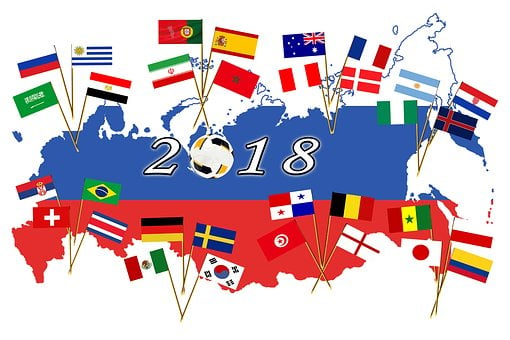 The FIFA 2018 World Cup started on June 14th 2018 in Russia. Football fans all over the world are ecstatic and are eagerly waiting for the team that will be awarded the coveted trophy after the month-long sporting event.
The FIFA 2018 World Cup started on June 14th 2018 in Russia. Football fans all over the world are ecstatic and are eagerly waiting for the team that will be awarded the coveted trophy after the month-long sporting event.
However, although football is very exciting, it is a very unpredictable sporting activity. The uncertainty of the game is one of the main charms that captivate enthusiasts on the direction the ball is taking for at least 90 minutes.
Since the start of the World Cup, several techniques have been designed to forecast the most likely winners of the popular sporting event in the world.
While most of the earlier predictions have been relying on unscientific methods—such as the popular Paul the Octopus that magically predicted the 2010 World Cup winner (Spain)—artificial intelligence scientists have also entered the prediction bandwagon, this time round.
A team of researchers from the German Technische Universitat of Dortmund, the Ghent University in Belgium, and the Technical University in Munich developed a machine learning algorithm to predict the possible winners of this year’s World Cup.
You can find the study here.
How the study was carried out
To predict the likely outcome of the most-watched football event, the researchers ran 100,000 simulations and employed three different modeling approaches: Poisson regression models, random forests, and ranking methods.
The AI researchers used the Poisson regression approach to model the previous scores of the competing teams as (conditionally) independent variables, according to the teams’ covariate information.
They also used Poisson models to estimate a team’s current ranking that reflects its capabilities.
Random forests were used to create multiple decision trees, which were then merged together to predict the number of goals a team can score in a World Cup event.
After carrying out tests using the three methods, the team of researchers found out that the best-performing prediction approach was the combination of random forests and ranking methods.
The team used data from all matches of the four previous World Cups (from 2002 to 2014) alongside numerous potential influence variables.
Some of the variables they looked at include economic conditions of the participating countries, FIFA ranking, home advantage, structure of the team, and capabilities of the coach.
Please have a look at the study to understand more about how the models work.
Results of the FIFA World Cup 2018 study
Here is a table showing the % probabilities of all the 32 teams reaching different levels in this year’s football tournament:
As you can see on the above table, the researchers predicted that Spain is the team that is likely to take home the coveted trophy, with a predicted winning probability of 17.8%.
The other possible top performers are Germany (17.1%), Brazil (12.3%), and France (11.2%).
The results also reveal other interesting predictions. For example, the two top performing teams, Spain and Germany, are predicted to have a nearly equal probability of reaching the round of sixteen, at 88.4% and 86.5% respectively.
However, the possibilities of the two teams reaching quarter finals differ considerably. Whereas the probability of Spain playing at the quarter finals is 73.1%, Germany has a low possibility of 58.0% because it is likely to meet a much stronger opponent such as Brazil or Switzerland.
As the game advances to conclusion, Germany would begin catching up with Spain. Ultimately, the two teams would end up with nearly the same winning possibilities.
Wrapping Up
Machine learning is an interesting technology that is traditionally used to predict the outcome of events.
For example, AndreyBu, who is from Germany and has more than 5 years of experience in software development, usually builds machine learning projects to accelerate the capabilities of applications. You can watch and learn from one of his projects here.
Now, machine learning is being applied beyond its traditional use cases. The results of this study demonstrates that machine learning models can be used to predict the outcome of major sporting events—instead of relying on clairvoyant animals, groundless naysayers, or sports pundits.
As earlier mentioned, the soccer game is highly unpredictable and the results of this study should be taken with a grain of salt.
In the game of soccer, anything can happen, and it’s based on the number of times a team of 11 men can chauffeur a ball successfully into the opponent’s goal, within at least 90 minutes.
Do you believe the results of this study? Who do you think will lift the trophy this year? Please let us know in the comment section below.







